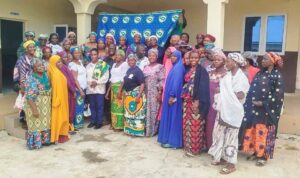

By Our Correspondent in Kontagora

The Chairman of the Christian Association of Nigeria (CAN), Niger State chapter, Most Rev. Dr. Bulus Dauwa Yohanna, has cautioned relatives against treating widows as property to be inherited, insisting that wives left behind by deceased husbands deserve respect and dignity.
Speaking during an event to mark the 2025 International Widows’ Day, organized by the Women Wing of CAN (WOWICAN), Niger State chapter, Bishop Yohanna, who is also the Bishop of Kontagora Catholic Diocese, condemned the cultural practice of claiming widows as part of a deceased man’s estate.
Represented by his deputy, Rev. Joshua Marcus, the Bishop said, “Widows are human beings like you and me and should be treated with dignity. It saddens my heart when I hear of relatives sharing a deceased man’s properties and including the wife. Widows are not part of the inheritance.”
He urged family members to support, rather than burden, widows and their children. “Instead of adding to their emotional and psychological pain, think of how to give them hope and add value to their lives,” he said.
Bishop Yohanna also encouraged widows to embrace self-reliance and productivity, despite the challenges of losing a spouse.
“Be good examples of the virtuous woman as described in the Bible. Engage in business, no matter how small, and remain focused on your children,” he advised.
Earlier, the State Chairperson of WOWICAN, Evangelist Ladi Nuhu, in her remarks themed “Empowering Widows: Building Resilience, Restoring Dignity”, called on widows to take active steps toward self-sufficiency.
“Life is transient, and no one knows when death will come. “That is why we encourage widows to stand firm, support their children, and never give up,” she said.
Evang. Ladi also referenced Isaiah 54:5–6, urging widows to find comfort in God’s promises: “Widows have a special place in the heart of God.”
The event, which featured the distribution of gifts to widows, drew participants from various faith-based and civil society organizations, including the Federation of Muslim Women in Nigeria (FOMWAN), Women in Dawah, and the Working with Widows Initiative.
Edited by Dada Ahmed.


